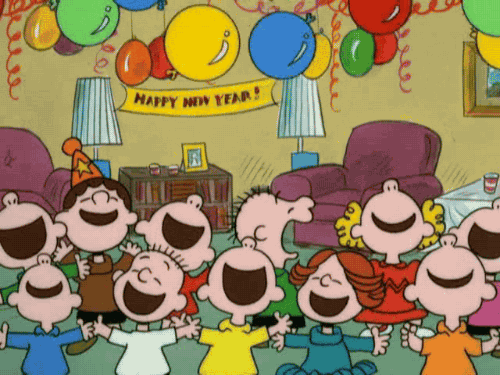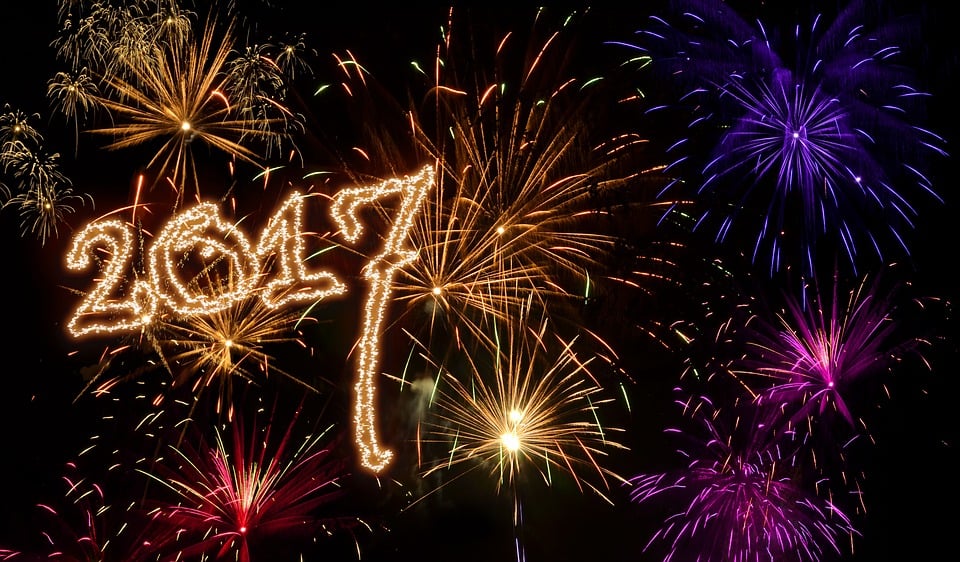New Year Celebrations From Around the World
Photo via Pixabay
Happy New Year!
Recovered from your Christmas turkey yet? Returned your unwanted gifts, had the traditional Family Argument over Trivial Pursuit or Cards Against Humanity? Then all that is left for you to do this festive season is drink and dance in the New Year!
Forget Trafalgar Square in London and Time Square in New York: here are some traditional New Year celebrations from around the world that might inspire you to travel for your New Year’s celebrations.
The traditional ones
Of course, these are not necessarily traditional for every household in every corner of the globe. But Auld Lang Syne is pretty synonymous with midnight at New Year, New Years resolutions have been around since Babylonian times, and whoever heard of a New Years Eve without fireworks? Fireworks and general noise making are said to banish evil spirits and bring in good luck: so that’s why we all get so drunk and silly when it’s time for New Year, right?

GIF via Giphy
The active ones
In Denmark leaping from your chair at midnight is supposed to bring you good luck – we suppose that depends on just how much alcohol you have imbibed before you try it, however.
In Rome celebrations for New Year last three days, with Romans decorating their houses with coloured lights and greenery, and choosing gifts for their loved ones with very specific meanings – precious metal for prosperity and honey for sweetness as two examples.
In Belgium New Years Eve is called Saint Sylvester Eve, and it is traditional to throw large family parties and raise toasts to the incoming year. Partying the New Year in is also the most important event of the year in Japan, where Bonenkai, or forget-the-year parties are held to bid a not-so-fond farewell to any problems or concerns of the passing year. Scotland as you probably already know calls its New Year’s Eve Hogmanay, and this has come to signal the party to end all parties.
The edible ones
In Brazil it is thought that lentils signify wealth and prosperity, and this is why so many foods served during the New Year period include this all-important ingredient. Peppermint ice creams are served for dessert in Austria and are said to bring fortune, and Greece bakes coins into bread, with the first slice offered to god, the second to the breadwinner of the house, and the third consumed for the house – where the coin is found determines what kind of luck will come to the household for the following year.

GIF via Giphy
The symbolic ones
In Wales at the initial toll of midnight the back door of the house is first opened and then immediately shut, symbolising the release of the last year and locking out any bad luck it brought with it. At the twelfth toll, the door is reopened to let the New Year and all its prosperity in.
Learning a new language? Check out our free placement test to see how your level measures up!
On the subject of doors, China likes to paint the front door of every house in red, which symbolises good fortune and happiness for the coming year.
The tradition of first footing in Scotland, where neighbours visit each other just after midnight often bearing small gifts of coal for the fireplace or shortbread for hungry tummies, is supposed to be especially lucky if the visitor is tall, dark and handsome. How unusual…
In Egypt New Year doesn’t even officially start until the new crescent moon is visible in the sky; we wonder what happens if there is cloud cover.
Bonfires are had in The Netherlands, where old Christmas trees are burned on the streets to purge the old and welcome in the new, and also in Panama, where effigies, or muñecos are also traditionally burnt in that same spirit of out with the old and in with the new.
If you want to have a travel-full year in your immediate future then perhaps Columbia is the place for you, where it is traditional at New Year to drag empty suitcases around the block.
Belarus offers games of prediction for unmarried women: a favourite involves piles of corn and roosters that makes our eyebrows raise, while another one involves a married woman hiding certain items around her home for unmarried women to find – bread means marriage to a wealthy man and a ring to a rich one. What, may we ask, is done for the unmarried men?
Back to Japan to close our look at New Year celebrations, where it isn’t enough just to party the old year away: those of true faith will wear costumes of the next year’s zodiac to their local temples, where a bell will be tolled 108 times to welcome in good luck.

Photo via Pixabay
Well that is it for another year from Listen and Learn: thank you for your company throughout. Here’s to a happy and prosperous New Year to us all!



